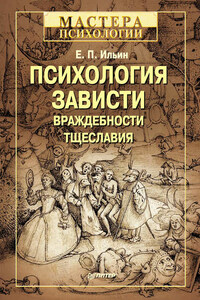CHAPTER I.
HOW THE CURSE BEGAN
There was nothing about Carne's Hold that would have suggested to the mind of the passing stranger that a curse lay upon it. Houses to which an evil history is attached lie almost uniformly in low and damp situations. They are embedded in trees; their appearance is gloomy and melancholy; the vegetation grows rank around them, the drive is overgrown with weeds and mosses, and lichens cling to the walls. Carne's Hold possessed none of these features. It stood high up on the slope of a hill, looking down into the valley of the Dare, with the pretty village of Carnesford nestling among its orchards, and the bright stream sparkling in the sunshine.
There was nothing either gloomy or forbidding about its architecture, and the family now simply called their abode The Carnes; the term "Hold" that the country people applied to it was indeed a misnomer, for the bombardiers of Essex had battered the walls of the old fortified house, and had called in the aid of fire to finish the work of destruction. The whole of the present structure was therefore subsequent to that date; it had been added to and altered many times, and each of its owners had followed out his own fancies in utter disregard of those of his predecessors; consequently the house represented a medley of diverse styles, and, although doubtless an architectural monstrosity, was picturesque and pleasing to the eye of men ignorant of the canons of Art.
There were no large trees near it, though a clump rose a few hundred yards behind it, and took away the effect of bareness it would otherwise have had. The garden was well kept, and bright with flowers, and it was clear that no blighting influence hung over them, nor, it would be thought, over the girl, who, with a straw hat swinging in one hand, and a basket, moved among them. But the country people for six miles round firmly believed that a curse lay on Carne's Hold, and even among the county families no one would have been willing to give a daughter in marriage to an owner of the place.
Carnesford, now a good-sized village, had once been a tiny hamlet, an appanage of Carne's Hold, but it had long since grown out of leading strings, and though it still regarded The Carnes with something of its old feudal feeling, it now furnished no suit or service unless paid for so doing. Carnesford had grown but little of late years, and had no tendency to increase. There was work enough in the neighbourhood for such of its inhabitants as wanted to work, and in summer a cart went daily with fruit and garden produce to Plymouth, which lay about twenty miles away, the coast road dipping down into the valley, and crossing the bridge over the Dare at Carnesford, and then climbing the hill again to the right of The Hold.
Artists would sometimes stop for a week or two to sketch the quaint old-fashioned houses in the main street, and especially the mill of Hiram Powlett, which seemed to have changed in no way since the days when its owner held it on the tenure of grinding such corn as the owners of The Hold required for the use of themselves and their retainers. Often, too, in the season, a fisherman would descend from the coach as it stopped to change horses at the "Carne's Arms" and would take up his quarters there, for there was rare fishing in the Dare, both in the deep still pool above the mill and for three or four miles higher up, while sea-trout were nowhere to be found plumper and stronger than in the stretch of water between Carnesford and Dareport, two miles away.
Here, where the Dare ran into the sea, was a fishing village as yet untouched, and almost unknown even to wandering tourists, and offering indeed no accommodation whatever to the stranger beyond what he might, perchance, obtain in the fishermen's cottages.
The one drawback to Carnesford, as its visitors declared, was the rain. It certainly rained often, but the villagers scarcely noticed it. It was to the rain, they knew, that they owed the bright green of the valley and the luxuriousness of their garden crops, which always fetched the top price in Plymouth market; and they were so accustomed to the soft mist brought up by the south-west wind from over the sea that they never noticed whether it was raining or not.
Strangers, however, were less patient, and a young man who was standing at the door of the "Carne's Arms," just as the evening was closing in at the end of a day in the beginning of October, 1850, looked gloomily out at the weather. "I do not mind when I am fishing," he muttered to himself; "but when one has once changed into dry clothes one does not want to be a prisoner here every evening. Another day like this, and I shall pack up my traps and get back again on board."
He turned and went back into the house, and, entering the bar, took his seat in the little sanctum behind it; for he had been staying in the house for a week, and was now a privileged personage. It was a snug little room; some logs were blazing on the hearth, for although the weather was not cold, it was damp enough to make a fire pleasant. Three of the landlord's particular cronies were seated there: Hiram Powlett, the miller; and Jacob Carey, the blacksmith; and old Reuben Claphurst, who had been the village clerk until his voice became so thin and uncertain a treble that the vicar was obliged to find a successor for him.











